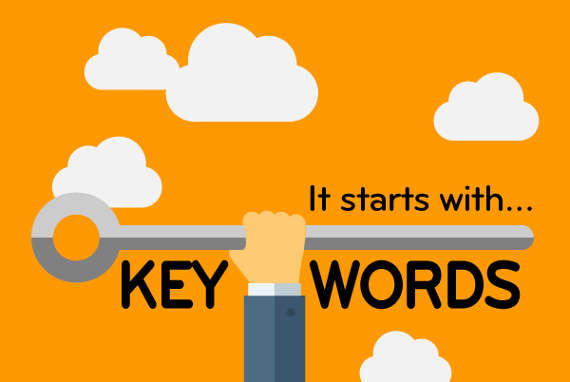Keywords appear to the current marketing buzzword, some people know what it means and how they should be implement and others are unsure. The goal of keywords is for people to visit your website from search engines, as your website is optimised and includes targeted keywords that users are searching for.
For example if you want people to visit your website as it has useful information about ‘architecture’ then you need to include the word architecture as many times on your page or website as possible. However it is not just a case of adding the word in every sentence and every location of your website as this is called keyword spamming and it will actually do more harm than good to your website.
Successful search engines like Google are able to determine the most relevant websites for the keywords queried, while it penalises sites that use spamming tactics. To be ranked high in search engines you need keyword rich content that is well written and structured, there are also 5 focus areas within your webpages that appropriate keywords can be placed:
Title Tag
The title tag shows up as the title in search results and on the browser windows, it is the most important place to place your keywords. Several things to consider for title tags:
- A title tag should be around 65-70 characters, make sure you choose keywords that correspond with the content on the page. Ensure the title tag actually makes sense.
- The most important keywords should be at the beginning of the tag.
- You can customise the title tag on each page to avoid duplicate content filters.
URL
Your website domain does not have to have keywords in, but webpage URL’s should include keywords. It makes sense so the users know what they will find on each page but also the search engine bots require them. Users often find links with readable and descriptive terms more trustworthy.
H1 Tag
H1 tags have been considered important in SEO for years, with the introduction of HTML5 and its new semantics websites are generally encouraged to use H1 tags at the head of multiple sections.
Body Text
Your body text should always include keywords; it should be naturally easy to include keywords into your text if you’re targeting the right audience. SEO experts say that you should aim to use 2-3 keywords on a typical page and 4-5 on pages where more copy is present. However remember relevant and quality of your content should overweigh keyword density. Your text needs to be well written and read well, do not keyword spam.
Image Name and Alt Attribute
The unsung heroes of SEO, images! Images can often bring valuable search traffic, and even traffic that regular text can’t reach. Users often search for images alone so it’s worth optimising your images text with keywords.
Give images readable names with keywords such as, airplane-landing-gatwick.jpg, which is much better then image-0876.jpg. Also ensure all your alt tags have a description of the image and include your relevant keywords.




